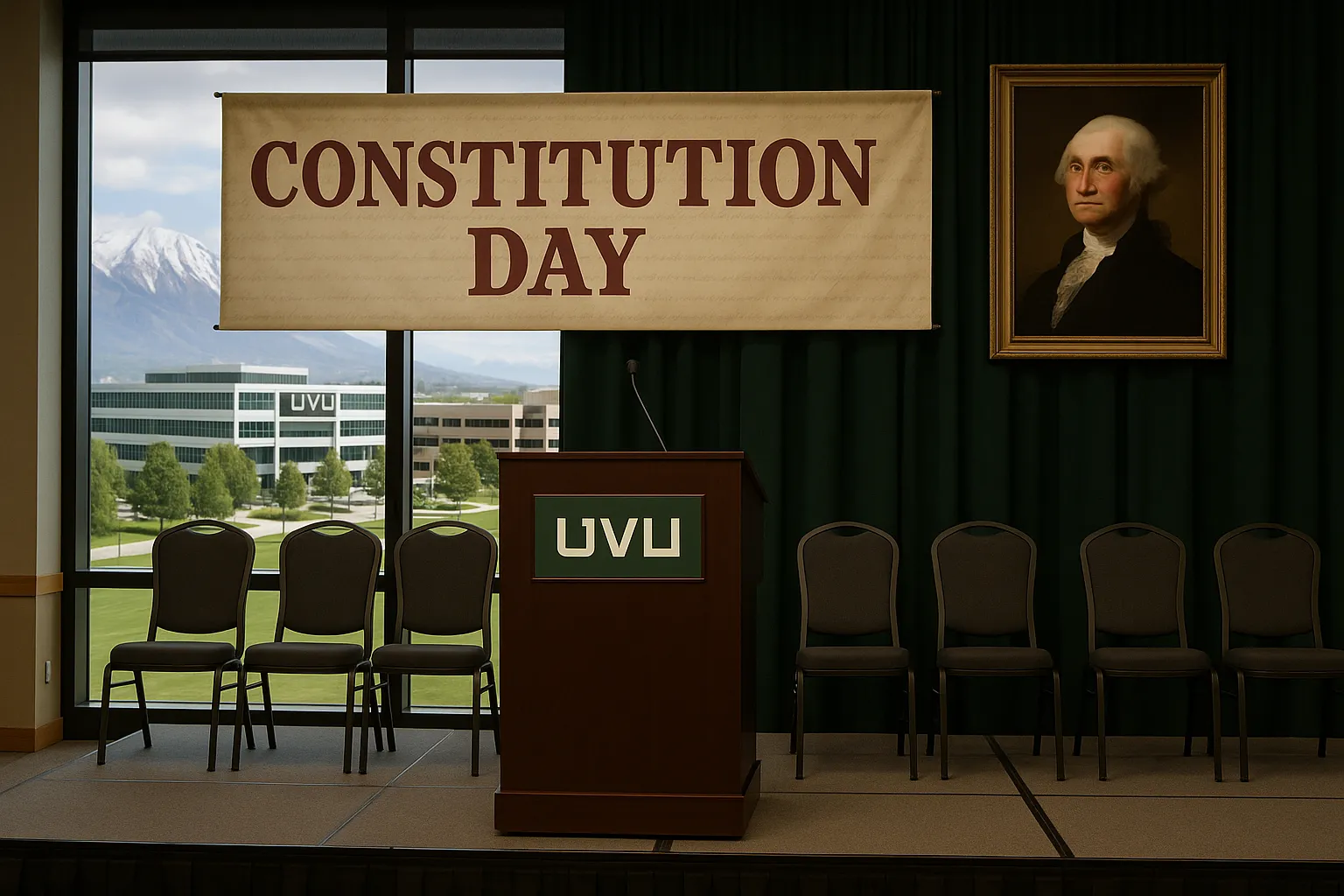UVU Kicks Off Annual Constitution Day Conference on George Washington’s Legacy

Lead: Utah Valley University’s Center for Constitutional Studies launched its annual Constitution Day Conference today, Sept. 10, spotlighting “American Cincinnatus: George Washington’s Constitutional Legacy” with scholars and students gathering on campus.
Nut Graf: The two-day event underscores UVU’s commitment to civic education by exploring foundational constitutional principles through lectures, panel discussions, and workshops, reinforcing the university’s role in preparing informed citizens and future leaders.
Conference Theme and Purpose
Themed “American Cincinnatus: George Washington’s Constitutional Legacy,” the conference examines how Washington’s character and leadership shaped the living Constitution. Organizers emphasize its relevance as debates over executive power and civic virtue intensify nationwide.
Opening Sessions
- Keynote Address: A leading constitutional historian from Washington & Lee University analyzed parallels between Washington’s relinquishment of power and modern checks and balances.
- Student Lyceum: Undergraduate presenters discussed how Washington’s precedent informs contemporary public service ethics.
Featured Activities
- Panel Discussion: Experts from UVU’s Department of History and Political Science will debate the evolution of the presidency under the U.S. Constitution.
- Workshop Series: Faculty-led workshops offer hands-on analysis of primary source documents, including Washington’s Farewell Address.
Logistics and Participation
- Location: Clarke Building, rooms CB 101B and FL 421.
- Dates: Sept. 10 and 17, with follow-on sessions on civic training for K-12 educators scheduled for tomorrow.
- Registration: Free and open to the public; attendees can participate in individual sessions or the full conference.
Outlook
As the nation approaches critical elections, UVU’s Constitution Day Conference provides timely reflection on the balance between leadership and republican governance, inviting all attendees to consider how the legacy of “Cincinnatus” continues to inform American democracy.
Categories
Autos and vehicles Beauty and fashion Business and finance Climate Entertainment Food and drink Games Health Hobbies and leisure Jobs and education Law and government Other Politics Science Shopping Sports Technology Travel and transportationRecent Posts
Tags
Archives
08/19/2025 (3) 08/20/2025 (40) 08/21/2025 (27) 08/22/2025 (22) 08/23/2025 (4) 08/24/2025 (21) 08/25/2025 (30) 08/26/2025 (24) 08/27/2025 (29) 08/28/2025 (16) 08/29/2025 (9) 08/30/2025 (13) 08/31/2025 (17) 09/01/2025 (167) 09/02/2025 (124) 09/03/2025 (149) 09/04/2025 (112) 09/05/2025 (72) 09/06/2025 (169) 09/07/2025 (162) 09/08/2025 (150) 09/09/2025 (176) 09/10/2025 (194) 09/11/2025 (194) 09/12/2025 (186) 09/13/2025 (207) 09/14/2025 (159) 09/15/2025 (175) 09/16/2025 (198) 09/17/2025 (196) 09/18/2025 (196) 09/19/2025 (207) 09/20/2025 (129) 09/21/2025 (4)